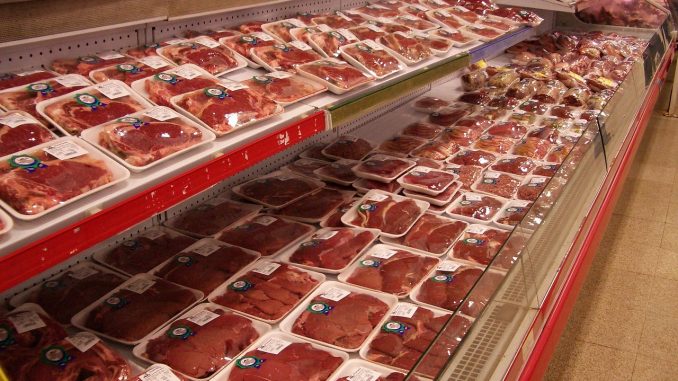
Meat consumption is growing globally, and the livestock industry is thought to cause 15% of all gas emissions which is significantly contributing towards climate change. It’s also damaging to public health and incurring huge costs. To avoid this and other problems like water pollution and antibiotic resistance, it’s been suggested that a “sin tax” on meat should be put in place.
Research by Farm Animal Investment and Risk Return (FAIRR) has suggested that meat should be treated in the same way as other harmful products like tobacco and sugar, and a tax could cut consumption dramatically. Taxes have already been discussed in Germany, Sweden and Denmark, and China has already cut the recommended allowance of meat to 45% last year.
According to Jeremy Coller, the founder of FAIRR, “If policymakers are to cover the true cost of human epidemics like obesity, diabetes and cancer, and livestock epidemics like avian flu, while also tackling the twin challenges of climate change and antibiotic resistance, then a shift from subsidisation to taxation of the meat industry looks inevitable. Far-sighted investors should plan ahead for this day.”
Maria Lettini, FAIRR’s director added that “As implementation of the Paris climate agreement progresses we’re highly likely to see government action to reduce the environmental impact of the global livestock sector. On the current pathway we may well see some form of meat tax emerge within five to 10 years.”
He also noted that investment in new technologies that reduce emissions caused by farming could mean less need for taxes, and that the food industry should be looking into more meat free alternatives. “There are huge opportunities in the market,” said Lettini. “If we can start replacing meat protein with plant-based protein that has the same look, taste and feel as meat, where real red-blooded meat eaters are happy to dig into a burger that is plant-based, we are changing the world.”
According to the data, a levy of 40% on beef and 8.5% on chicken could save at least 500,000 lives worldwide each year and could also reduce carbon emissions. Although the tax could be difficult to implement, it’s believed that subsidies on healthy food could reduce disputes from the farming industry and opposition from the public.
Rob Bailey at Chatham House said “It’s only a matter of time before agriculture becomes the focus of serious climate policy. The public health case will likely strengthen government resolve, as we have seen with coal and diesel. It’s hard to imagine concerted action to tax meat today, but over the course of the next 10 to 20 years, I would expect to see meat taxes accumulate.”
Marco Springmann from the Future of Food program at the University of Oxford added that “Current levels of meat consumption are not healthy or sustainable. The costs associated with each of those impacts could approach the trillions in the future. Taxing meat could be a first and important step.”


Leave a Reply